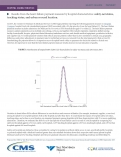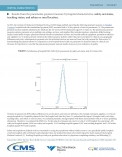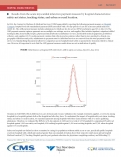{[{condition.label}]}: Index Admission Payments ({[{condition.index.percent}]}%)
Post-Acute Care Payment ({[{condition.acute.percent}]}%){[{condition.label}]}: Post-Acute Care Payment ({[{condition.acute.percent}]}%)
Index Admission Payments ({[{condition.index.percent}]}%)Table View
| Type of Payment | {[{condition.label}]} | ||
|---|---|---|---|
Index Admission Payments |
|||
|
Index Admission Payments
|
|
|
|
| Proportion of index admission payments (%) | Average payment per patient ($) | ||
|
|
|
|
Post-Acute Care Payment |
|||
|
Post-Acute Care Payment
|
|
|
|
| Proportion of post-acute care payments (%) | Average payment per patient ($) | ||
|
|
|
|
How do we determine episode of care payment?
Episode of Care
Standardizing Payment
To calculate standardized payments that reflect differences in care provided for patients, payments based on geography (i.e. cost of living and wage index) or policy adjustments (i.e indirect medical education and disproportionate share) are removed from the payment calculation.
Breakdown of the Types of Payment
Notes
For the publicly reported results by hospital, please visit HospitalCompare.
MEASUREMENT PERIOD
The measures included in this visualization have the following measurement period:
Table 1. Included Measures
|
Outcome |
Condition/Procedure |
Measurement Period |
|
Payment |
Acute Myocardial Infarction |
7/2015 - 6/2018 |
|
Heart Failure |
7/2015 - 6/2018 |
|
|
Pneumonia |
7/2015 - 6/2018 |
|
|
Total hip arthroplasty and/or total knee arthroplasty |
4/2015 - 3/2018 |
DATA NOTES
Only hospitals with at least 25 qualifying hospitalizations for a given measure are included in the visualization.
DEFINITIONS
Table 2. Key Definitions
|
Term |
Definition |
|
Histogram |
A graphical representation of the distribution of numerical data. Please see “Figure Explanations” in Related Research for more information. |
|
Episode of Care |
Starting with the index admission, the 30-day (for AMI, heart failure and pneumonia patients) or 90-day (Hip/Knee arthroplasty) window in which the patient receives care across multiple care settings. |
|
Index Admission Payments |
All payments related to the initial admission for an episode of AMI, heart failure, pneumonia, or hip/knee replacement care and evaluated for the outcome. |
|
Post-Acute Care Payments |
All payments related to care received after being discharged from the index admission. |
| Non-Acute Inpatient Settings |
All payments related to long-term care in inpatient settings, including inpatient psychiatric facilites, inpatient psychiatric physician visits, inpatient rehabilitation facilities, inpatient rehabilitation physician visits, and long-term care hospital (LTCH) facilities. |
|
Standardized Dollars |
Payments are standardized for each care setting using the CMS Standardization Methodology for Allowed Amount. Geographic differences and policy adjustments in payment rates for individual services are removed from the total payment for that service. Where geographic differences in payments cannot be removed, they are averaged across geographic areas. |
|
Miscellaneous |
The miscellaneous category includes ambulance, medical supplies, and other costs. |
|
Stacked bar chart |
A stacked bar chart shows a sum of values as a column or bar, including the individual subgroups within the sum. Subgroups of data within the bar allow for comparisons of the relative contribution of each subgroup to the bar and the overall chart. Please see “Figure Explanations” in Research Briefs for more information. |
Methodology Sources
AMI, Heart Failure, Pneumonia, and Elective Primary Total Hip Arthroplasty (THA) and/or Total Knee Arthroplasty (TKA) Payment Measures Methodology: Lori Wallace, Jacqueline N. Grady, Darinka Djordjevic, et al. 2019 Measure Updates and Specifications Report Hospital-Level Risk-Standardized Payment Measures: Acute Myocardial Infarction – Version 8.0, Heart Failure – Version 6.0, Pneumonia – Version 6.0, Elective Primary Total Hip Arthroplasty (THA) and/or Total Knee Arthroplasty (TKA) – Version 5.0. https://www.qualitynet.org/inpatient/measures/payment/methodology. Available as of April 23, 2019.
Related Research
To view PDF documents you will need the Adobe Acrobat Reader.
-
Heart Failure Payment: Results by Hospital Characteristic
[PDF, 188.58 KB]Heart failure payment measure results by hospital characteristics: safety-net status, teaching status, and urban or rural location (July…
-
Pneumonia Payment: Results by Hospital Characteristic
[PDF, 188.03 KB]Pneumonia payment measure results by hospital characteristics: safety-net status, teaching status, and urban or rural location (July 2011 -…
-
AMI Payment: Results by Hospital Characteristic
[PDF, 185.34 KB]AMI payment measure results by hospital characteristics: safety-net status, teaching status, and urban or rural location (July 2011 - June…



